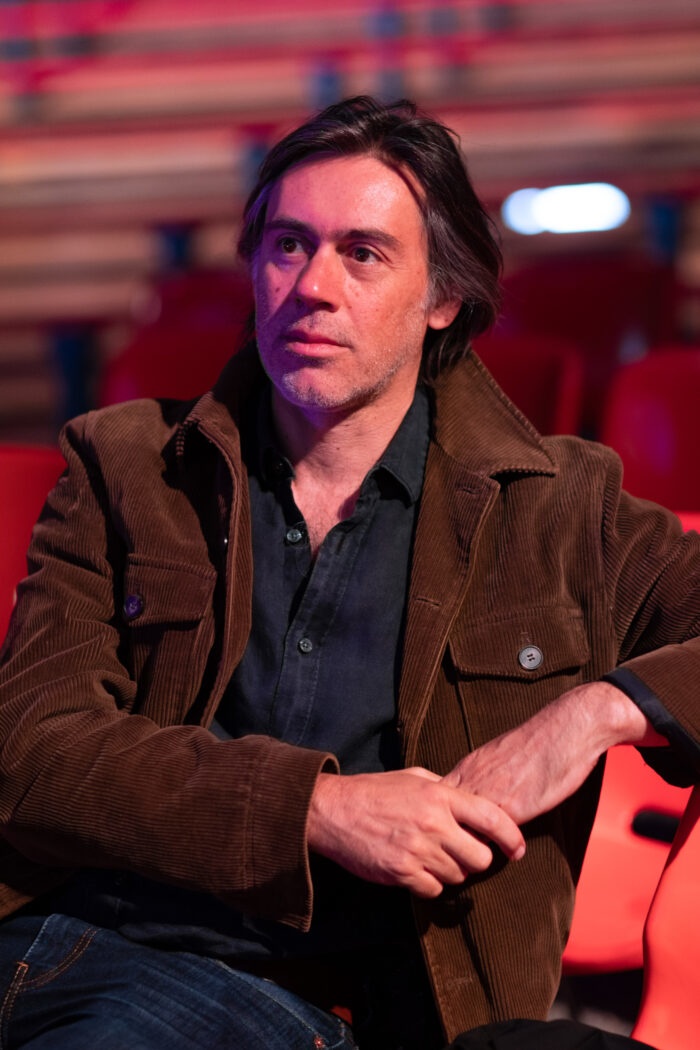This year The Midnight Sun Film Festival presents to the audience director Emmanuel Mouret who has been relatively unknown in Finland until now but has a robust film career in France. Friday’s morning discussion was a profound master class on the essentials of film making, the awkwardness of being human, and the value of putting in effort.
Mouret studied at the famous La Fémis film school in Paris but in the he learned the toughest but also the most defining lessons during a short film production he did at the age of 19 in which everything went wrong. On the third day of filming, the young director locked himself in his home, because he felt that he did not know how to direct his actors. Pushed by this setback and to better understand the art of acting and the medium of cinema Mouret studied theatre and American screenwriting manuals. With age, studies, and experience he managed to free himself from the weight of film history and the myth of a director who knows everything and never makes mistakes. “I want to be honest: I am a director who does not know what he is doing and cannot hide the fact that he does not know.”
The awkwardness, complications, and contradictions of human life have become an endless treasure trove for Mouret who has depicted the intricacies of love life masterfully ever since his early summer love film Venus and Fleur (Vénus et Fleur, 2004) up until the study of attraction Diary of a Fleeting Affair (Chronique d’une liaison passagère, 2022) that premiered in Cannes last year. As a director Mouret wants to give space to the work of the actors interpreting their fickle characters as well as the viewer’s need to learn yet a bit more about the film’s story and to project their own thoughts and feelings onto it.
Mouret urges the young movie makers and cinephiles to put in effort. Technical effortlessness will not help structure thoughts and optimising does not make for interesting art: “At some point screenwriting manuals advised to give maximum amount of information in as few words as possible. I think that’s dumb! I want to give minimum amount of information in as many words as possible, then you can find something surprising in the midst of it all.”
For Mouret the beauty of cinema and literature is in making seemingly small and even intimate situations and stories passionate and important: “I have always found interesting what philosopher Stanley Cavell writes about how to be good with all that passes through us.” The characters in Mouret’s films may mean well, but contradictions arise when the will to stay faithful to one’s commitments pulls to one direction and the wish to stay true to one’s own needs to a different one. The director does not warm up to Olaf Möller’s suggestion that he might leave relationship studies and start making thrillers but admits that maybe these contradictions that question the conventional morals are in themselves some sort of tiny thrillers – although without guns and car chases.
Even though Mouret’s family did not have a strong culture of going to cinema when he was growing up in Marseille, he has been making up for it by watching films and reading about them ever since his teens. The earliest fragments he remembers are slapstick comedies based on awkwardness: Buster Keaton, Charles Chaplin, Jacques Tati, and Jerry Lewis. His choice for a film he would take to a deserted island is also a joyful one: Roberto Rossellini’s film on Francis of Assisi The Flowers of St. Francis (Francesco, giullare di Dio, 1950).
Photo: Susanna Pesonen.
